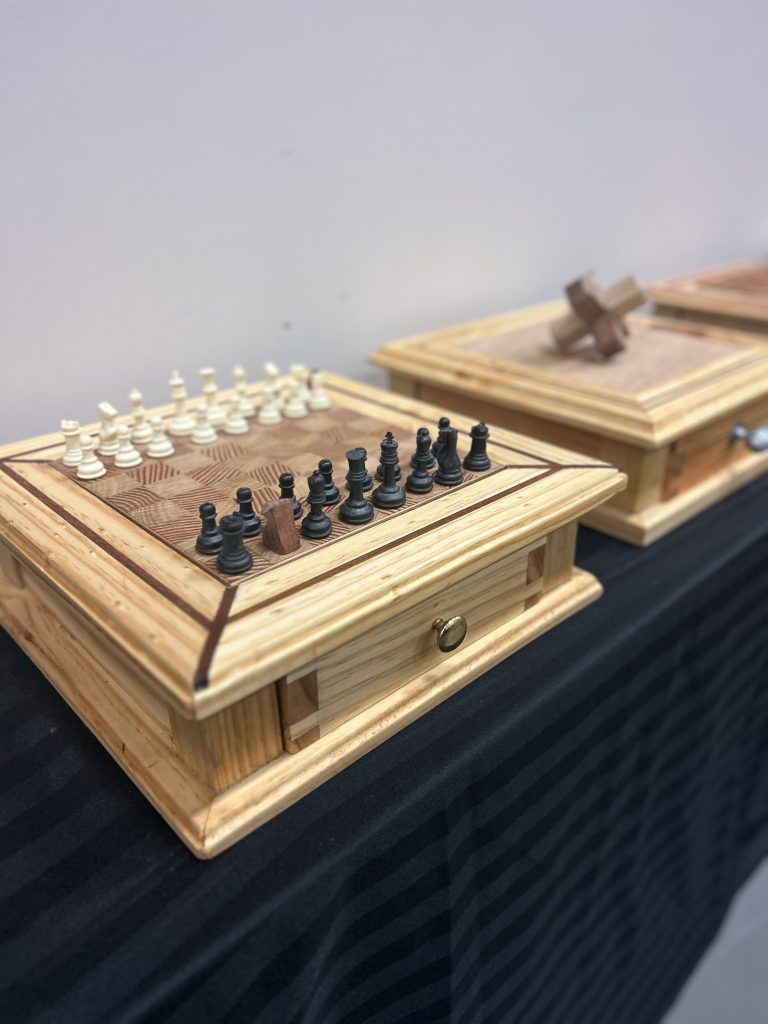Learning
Technological and Applied Studies (TAS)
In NSW, all Year 7 and 8 students (Stage 4) must study Technological and Applied Studies (TAS). In later years, students can choose from various TAS electives in Stage 5 and 6.
Curriculum Overview
TAS equips students with knowledge, understanding, and practical skills through hands-on design and production processes. It incorporates various tools, materials, and techniques across a technology learning continuum:
- Stage 4 (Years 7-8): Students tackle real-world problems collaboratively by analysing, designing, testing, documenting, implementing, and evaluating solutions.
- Stage 5 (Years 9-10): Students can specialise in elective courses that build on their Stage 4 learning. These include Food Technology, where they explore nutrition and food preparation; Computing Technology, which focuses on programming and digital solutions; Industrial Technology (Timber or Multimedia), which develops practical skills in creating projects; and Design and Technology, which fosters creative problem-solving through innovative design projects.
- Stage 6 (Years 11-12): Students can undertake courses such as Food Technology, which emphasises nutrition, diet, and the Australian Food Industry; Industrial Technology (Timber Products or Multimedia), which includes a major project and industry-related skills; Design and Technology, which focuses on innovative solutions and advanced prototyping; and Software Engineering, which covers systematic approaches to software design and development.
Stage 4 (Years 7 and 8) Courses
Students create portfolios documenting their research, tools, and processes, contributing 50% to their assessment. Coursework covers:
- Technology: Projects develop critical and creative thinking while honing problem-solving and design skills.
Stage 5 (Years 9 and 10) Courses
- Computing Technology- Focuses on computational, design, and systems thinking, alongside skills in data analysis and programming (coding). Students develop digital solutions for industrial, commercial, and recreational applications.
- Design and Technology- Encourages innovative and creative thinking through design projects. Students investigate existing solutions, analyse information, and produce prototypes, products, and solutions for real-world problems.
- Food Technology- Explores nutritional considerations, food properties, and the broader impact of food on life. The “Service with a Smile” unit, for instance, involves practical catering and food service experiences.
- Industrial Technology (Timber or Multimedia)- Focuses on creating practical projects using specialised tools and techniques.
Stage 6 (Years 11-12) Courses:
Preliminary Courses:
- Food Technology
- Industrial Technology (Timber Products and Software Engineering)
HSC Courses:
- Food Technology
- Industrial Technology (Timber Products and Software Engineering)
Food Technology: Covers nutrition, diet, and the Australian Food Industry. Practical skills in food preparation, planning, and presentation are key components.
Industrial Technology (Timber or Multimedia): Develops knowledge and skills related to selected industries, focusing on design, management, and production. Students complete a Major Project with supporting documentation.
Design and Technology: Enables students to develop innovative solutions for real-world problems by investigating, designing, and producing advanced prototypes and projects.
Software Engineering: Introduces systematic approaches to software design, development, and evaluation. Students integrate hardware and software to create innovative solutions while building foundational computer science knowledge.


